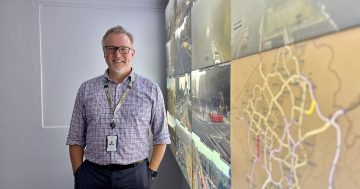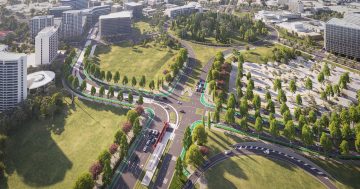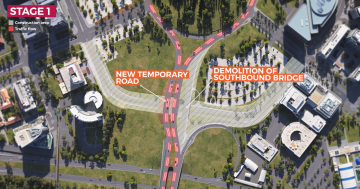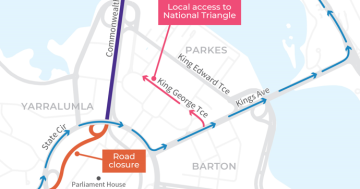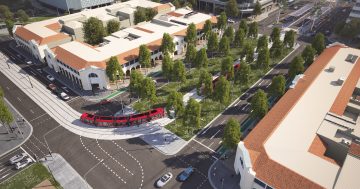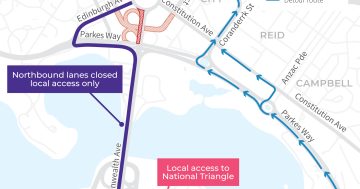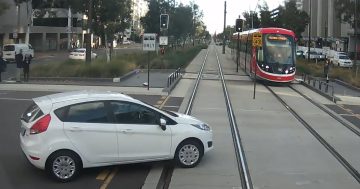
More traffic lights, more cameras and Bluetooth sniffers are coming to Canberra. Photo: File.
More than a million dollars worth of traffic monitoring cameras and Bluetooth sensors are on the way to the Territory’s roads.
It’s part of the Territory government’s bid to help ease some light rail-related disruptions for motorists facing years of chaos as the major infrastructure project continues.
Yesterday, 600 car parks in the city were closed so work can begin to raise London Circuit.
Minister for Transport and City Services Chris Steel acknowledged motorists would be feeling the pain.
But he said the government had been and would continue to be upfront with commuters about what to expect and when as early works to raise London Circuit get underway.
He said installing the 40 additional Bluetooth sensors or “sniffers” and 30 new traffic cameras, along with increased traffic monitoring, would help reduce congestion and keep things moving quickly.
“This will give us better data about congestion on our road network so we can provide better real-time information to motorists before and during travel,” Mr Steel told reporters yesterday.

Minister for Transport and City Services Chris Steel said motorists would be inconvenienced by light rail construction. Photo: ACT Government.
The information received by cameras and Bluetooth sensors is used to help emergency services respond to accidents on the road network.
It also helps the traffic control network and Roads ACT make better decisions about traffic light signals and road closures, Mr Steel said.
The 180-odd sniffers currently active on Canberra’s roads operate by picking up a Bluetooth-enabled device such as a car or a phone in a car and registering its MAC address.
Another sniffer then picks this up in another location, providing real-time information about travel times to traffic operations teams.
Mr Steel said data were deidentified, encrypted and deleted as soon as the information had been used for its intended purpose.
“We’re upfront with Canberrans [about this]. We’re using that data for its intended purpose, and we don’t collect any more data than we need to,” he said.
“The measures we are putting in place are reasonable and I think Canberrans understand that.”
He suggested anyone who did not want to be picked up on the road network could turn off their Bluetooth.
Mr Steel said motorists would need to reconsider parking in the city or consider using public transport.
Offering free public transport wasn’t yet on the cards, but Mr Steel said “further announcements” on this would be made in the future.
He’s previously flagged it is not the government’s view that free public transport across the system would be a useful measure, despite repeated calls from the Opposition to employ it.
“This is a period of disruption which will last several years, so the measures will be tactically employed at certain times,” Mr Steel said.
The ACT Government is assuring Canberrans clear information will continue to be provided via traditional and new media channels throughout the entire light rail process.
There’s still no clear timeline for when light rail passengers will be able to disembark from light rail in Woden. Mr Steel has been hesitant to provide this despite repeated questioning and probing by the Opposition.
He said the government is committed to the project and working through the steps.
Works have just commenced on the signalisation of the Coranderrk Street roundabout and temporary lights will be installed on the northern side of Vernon Circle to allow vehicles to turn right safely to access Constitution Avenue and London Circuit.
More road closures are anticipated on London Circuit towards the end of the year, but major disruptions are expected next year when one side of Commonwealth Avenue Bridge is closed during the raising of London Circuit.
Negotiations with Canberra Metro for the procurement and construction of Stage 2A are expected to be completed next year, Mr Steel said.
Stage 2A will take light rail to Commonwealth Park.
The cameras and Bluetooth sensors will be online in the coming months.
More information about light rail-related disruptions is available online.












